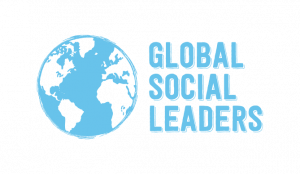GSL PLASTIC CHALLENGE
Inspired by the incredible social action projects being led by teams of young people around the world as part of our Global Social Leaders Sustainable Development Goal (SDG) Competition the Future Foundations team have decided to get involved and help support the United Nations Global Goal Campaign.
Over the past 30 days we challenged ourselves to consume more responsibly and consciously, by reducing our single use plastic waste. Read on to find out who in the team we took the challenge, what we learnt and how you can get involved.
What are the Global Goals for Sustainable Development?
In September 2015, world leaders agreed to 17 Global Goals for Sustainable Development. If these Goals are completed, it would mean an end to extreme poverty, inequality and climate change by 2030.
Future Foundations challenges young people to THINK GLOBAL and ACT LOCAL, examining the issues behind the Goals and understanding the part they can play by joining the biggest attempt in the history of the human race to make the world a better place.
Global goal 12 is to ensure sustainable consumption and production patterns for the world and by 2030, substantially reduce waste generation through prevention, reduction, recycling and reuse. This is the goal the Future Foundations team will be giving our support to through the GSL Plastic Challenge.

Michelle Horne
I was really keen to take part in this challenge, its something we are all very aware of at the moment. I don’t think many of us who saw the recent BBC documentary Blue Planet were not affected and wanting to make a personal change.
The GSL Plastic Challenge helped by giving me a focus, and prompted me to set a really SMART set of goals focusing on my use of disposable coffee cups and water bottles.
I already had a travel water bottle, and travel coffee cups, but what I needed to do was shift my thinking and habits and make using these everyday a conscious decision. It may sound simple but I carried my coffee mug with me, and made a choice to not buy coffee to take away if I didn’t have it.
Sadly, what I realised that is that sometimes good intentions can be scuppered…. I went into a coffee shop to have a coffee in, and they didnt have mugs… just take away cups. I should have used my will power and walked out and gone elsewhere (I didnt have my cup with me that day)…but I didnt.
Over my whole challenge of 30 days I did have 2 take away coffee cups and one bottle of water (I had my own bottle but the venue wouldn’t allow it in filled and no fill stations!)
What I have learnt:
- I need to stick to my principles, its easy to find another place for coffee or not buy it at all if I cant get a proper cup;
- I will contact the companies that scuppered my plans to query their policy;
- Being organised is the key to success!
My next follow on challenge is:
- To keep going with my new habit of not having take away cups and bottles;
- To reflect on the plastics I use every day that have a better alternative;
- Keep it SMART and focus on what is possible and achievable!
So, I recently took on the 30 Day #GSLPlasticChallenge as part of our work to help achieve the SDGs #GSLGoals and I pledged to not use a take-away coffee cup, not use plastic bags and to use a reusable plastic bottle. Essentially reducing my use of single-use plastics!
Here is what I learnt:
- It was a great way to save money! This was because unless I had my take-away coffee cup it meant no coffee.
- It sparked conversations – It was amazing the conversations the challenge led to. Some people were super negative and told me it was pointless and would not bring about change. To those people, I say keep reading…However, it impacted some friends more positively and they have gone out and bought aluminium water bottles and started taking their keepy cups to work regularly.
- Home was easier than Rome – I found it much easier to stick to my guns when at home. I went away to Rome for 4 days and this was way more challenging. Firstly, I forgot to pack my water bottle, so this meant in order to stay hydrated I had to buy one when I got there. I did reuse the same bottle for the duration, but still this increased rather than reduce my use of plastic.
Rome made reusing easy as it provides public access to water all over the city. This is something that is very visible. There are fountains all over the city and it is a regular sight to see people refilling water bottles or drinking from them.
This is not something that is visible in London, however I started investigating whether or not anyone was doing anything about it! I knew in Bristol we have the Refill campaign and I was delighted to discover that this is being piloted in lots of cities. So download the App now and start refilling those bottles!

Amy Mander
What is clear is that the #GSLPlasticChallenge is part of something much bigger. During our challenge we’ve been researching initiatives and have been delighted to see we are one of many! It’s been hugely gratifying to see that people power is making a difference, experts have noted that by far the most impressive contribution towards reducing plastic waste is not from businesses or politicians but from individuals and campaign organisations.
So, on the day that the UK government has announced plans for a deposit return scheme to crack down on plastic pollution we encourage everyone reading this to get involved and be part of this exciting movement towards a greener future.
And to all those neigh-sayers we say ‘Hey, turns out a little action goes a long way, so ride the wave and join us in our #GSLPlasticChallenge this April!






